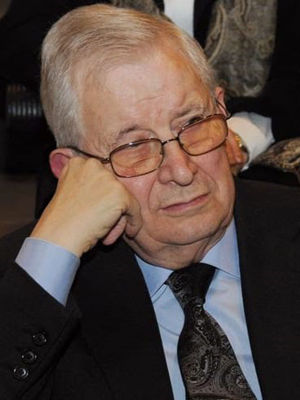Last July, Josep Corrons Espinal died in Manresa, the city in which he was born in 1928 and where he spent all of his family and professional life. He studied medicine at the University of Barcelona, graduating in 1951, and then enrolled in its prestigious School of Cardiology, completing various two-year courses that earned him the Diploma of Specialist in Cardiology. He went on to expand his clinical training in Lyon, with Prof. R. Froment. He carried out all of his clinical work in Manresa, but remained on the faculty of the School of Cardiology until it closed in 1976. After that, he regularly attended clinical sessions at the cardiology department of Hospital Universitari Vall d’Hebron. He never lost his enthusiasm for learning, and never stopped reading Braunwald's, until close to the end of his life. In short, his was a life dedicated to the study of clinical cardiology, spurred on by a fear of not knowing enough to best help his numerous patients.
In central Catalonia, he was a highly respected cardiologist, thanks to his knowledge, dedication, and humanity. In 1974, taking advantage of his considerable medical and social prestige, he created his greatest achievement: the Coronary Unit of Manresa, made possible thanks to the unconditional support of the Caja de Ahorros de Manresa (Manresa Building Society). It is worth noting that this was the first Coronary Care Unit in Catalonia outside of Barcelona. I witnessed first-hand the medical care received by the patients there: never have I seen another hospital that offered such humanized medical care. The unit itself lasted until 1987, when it was integrated into the Manresa Care Network; he was director of its Department of Cardiology until his retirement. Following on from the Coronary Unit, in 1991 he organized the Jornada Catalana de Cardiologia (Catalan Cardiology Conference) which, with the collaboration of his friend Valentín Fuster, later gave way to the Jornadas de Cardona, attended by many cardiologists from all over Spain.
That outlines his professional life, but Dr Corrons cannot be understood without taking into account two fundamental aspects of his personality: his religious beliefs and his love for Catalonia. He was a profoundly Christian man, always humbly trying to apply his firm faith in serving others. This was reflected not only in the exquisite way he treated patients and colleagues (doctors and nurses), but also in his involvement in other social activities; a good example was his great work as president of Fundació AMPANS, a private entity dedicated to giving support to people with intellectual disabilities or in situations of vulnerability.
His great love for Catalonia, a common topic of conversation and concern between us, aligned with the ideas of his admired, historian Jaume Vicens Vives and of poet Salvador Espriu: there was no place for exclusion.
Josep, you now rest in peace in the realm of silence, perhaps close to the meek and humble of heart of whom I heard you speak many times, to your inseparable wife, Anna Maria, and your beloved daughter Mariona. Here, in the realm of dissonance, your daughters and the rest of your family suffer your loss and miss your wisdom. I miss your loyal and fond friendship of 62 years; but, more than anything, thousands of patients in central Catalonia will forever be indebted to your invisible presence, thankful that, when their heart threatened to stop beating, they did not have to leave their homeland to receive excellent medical care. With great fortune, your legacy will live on in the spirit of those now in charge of cardiology in Manresa. Adéu, estimat Josep.

